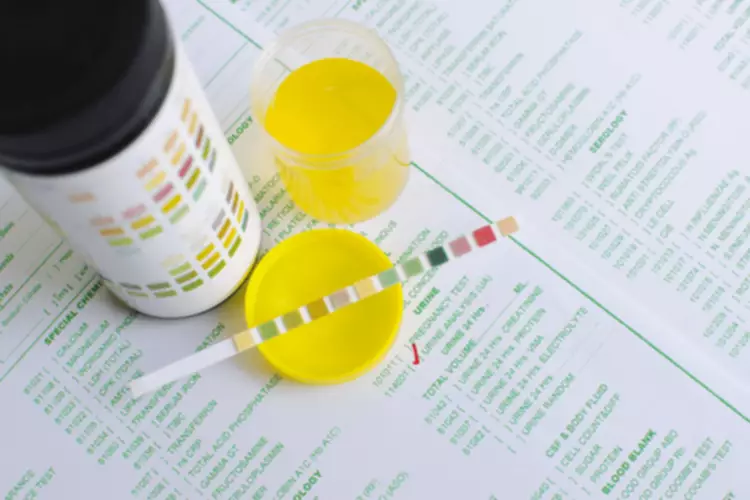How Long Does Alcohol Stay in Your System

People ask the question “How long does alcohol stay in your system?” for many reasons. Some simply want to know when they can safely drive, while others are required to watch their alcohol consumption due to work responsibilities. Before answering, let’s first review how alcohol affects your body.

Not many people are aware of the fact that alcohol is not digested in your body like food or other drinks. Upon absorption, alcohol begins to enter the human bloodstream. Theoretically, it can begin to be absorbed already in the mouth, absorbed through the mucous surface, but in practice, it can be only a very small fraction of it. Oddly enough, not all alcohol is absorbed in the stomach either – only about 20% is absorbed there.
Everything else enters the bloodstream in the intestines. At this stage, a physiological difference between an empty and a full stomach is visible: in a person with a full stomach, up to a third of alcohol is lost without entering the bloodstream. The absorption stage usually lasts about an hour, and by the end of it, the concentration of alcohol in the blood is at its maximum.
It should also be noted that patients with alcoholism have a much higher absorption rate than healthy people, respectively, and they also get drunk faster. During distribution, alcohol is carried throughout the body via the blood. Initially, its maximum concentration is observed in arterial blood, but then alcohol is distributed quite quickly (within 3-5 minutes) throughout the bloodstream.
Finally, during the elimination stage, the body begins to break down alcohol. The bulk of ethyl alcohol decomposes in the liver, some is excreted through the urinary system, and some through the lungs during breathing.

Alcohol in Blood
How long does alcohol stay in your system? The alcohol is excreted for a rather long time. It is difficult to calculate and give an exact answer, as it is very individual. Everyone’s reaction to alcohol is played out differently. A lot of indicators affect how fast ethanol gets into the blood and then clears. The most important factor is the individual characteristics of the human body.
- Whatever one may say, most females are subject to stronger effects of this substance. It will take about 20% longer for their body to remove ethanol than from the male.
- Weight. The greater the weight, the slower the person will get drunk.
- How much alcohol do you think is kept in the body of an elderly person? Several times more than in a young body! The older a person is, the lower their rate of alcohol breakdown. In addition, the body’s water content decreases with age, which further slows down alcohol removal from the system.
- Health. With the presence of any diseases, stress, or fatigue, a person will get drunk faster.
- An empty stomach and a light snack also play an important role in how long it will be absorbed and stay in your body. Fatty and nutritious foods (nuts, meat, fish, etc.) will help to slow down the appearance of ethanol in the bloodstream.
One should also keep in mind that the strength and amount of alcohol consumed, the time period during which it was taken, the amount of non-alcoholic liquid intake, and even your genetics also influence the results. Most of the alcohol is excreted in the first two days. When a large amount is consumed, alcohol remains in the body for three days. You can find online calculators that allow you to calculate the time of the alcohol elimination based on the data you provide. However, it will be very rough, so do not base serious decisions on it.
How long does alcohol stay in your urine?
The period during which alcohol is retained in the urine is determined factors discussed above as well as:
- time since the last intake of alcohol and urination (ethyl is retained with urine)
- the volume of additionally consumed liquid (non-alcoholic)
- diseases that make it difficult to pass urine.
So, how long does alcohol stay in your urine? As you might have already realized, the answer will vary from person to person and from situation to situation. Generally, alcohol is completely removed from human urine in 8 to 30 hours. Urine is fully cleared in a few days, while sweat, blood, and breastmilk – 10-12 hours.

The mucous membrane in the female body is thinner, therefore, rapid absorption occurs, and alcohol from urine comes out 20-25%h slower than in men. With a long-term drunken state, a woman loses up to 0.1 ppm per hour, while men – up to 0.15.
Older people and adolescents cope worse with alcohol than young people and middle-aged people. The more a person weighs, the less time alcohol stays in the urine and takes less time to get excreted by the kidneys. A stressful state, due to adrenaline, contributes to faster elimination of intoxicants.
Alcohol stays in urine longer if a person has cirrhosis, hepatitis, and other liver diseases because the liver produces special enzymes for the decomposition of toxins and ethyl. Several other diseases can slow down this process as well:
- diseases transmitted by sexual contact
- diabetes
- problems with the thyroid gland
- heart and kidney failure
- narrowing of the urethra
- prostate adenoma, sclerosis, and prostatitis of the prostate gland
- obesity and hormonal imbalance
- chronic alcoholism.

Take back control of your life and start on the road to recovery now.
Where the concentration of alcohol is higher – in urine or blood?
Knowing how alcohol affects your body, you can easily answer this question. Depending on the time elapsed from the moment of taking alcohol, the level of concentration in urine and blood changes. At the absorption stage, which lasts for about three hours, alcohol moves from the gastrointestinal tract to the cardiovascular system, so the concentration of ethyl alcohol is higher in the blood.
Further, ethyl alcohol is oxidized and excreted from the body. At this stage, the concentration of ethanol in the blood decreases, while in urea it rises. The more time passes from the beginning of alcohol intake, the more the difference in the level of ethanol in urine and blood grows.




